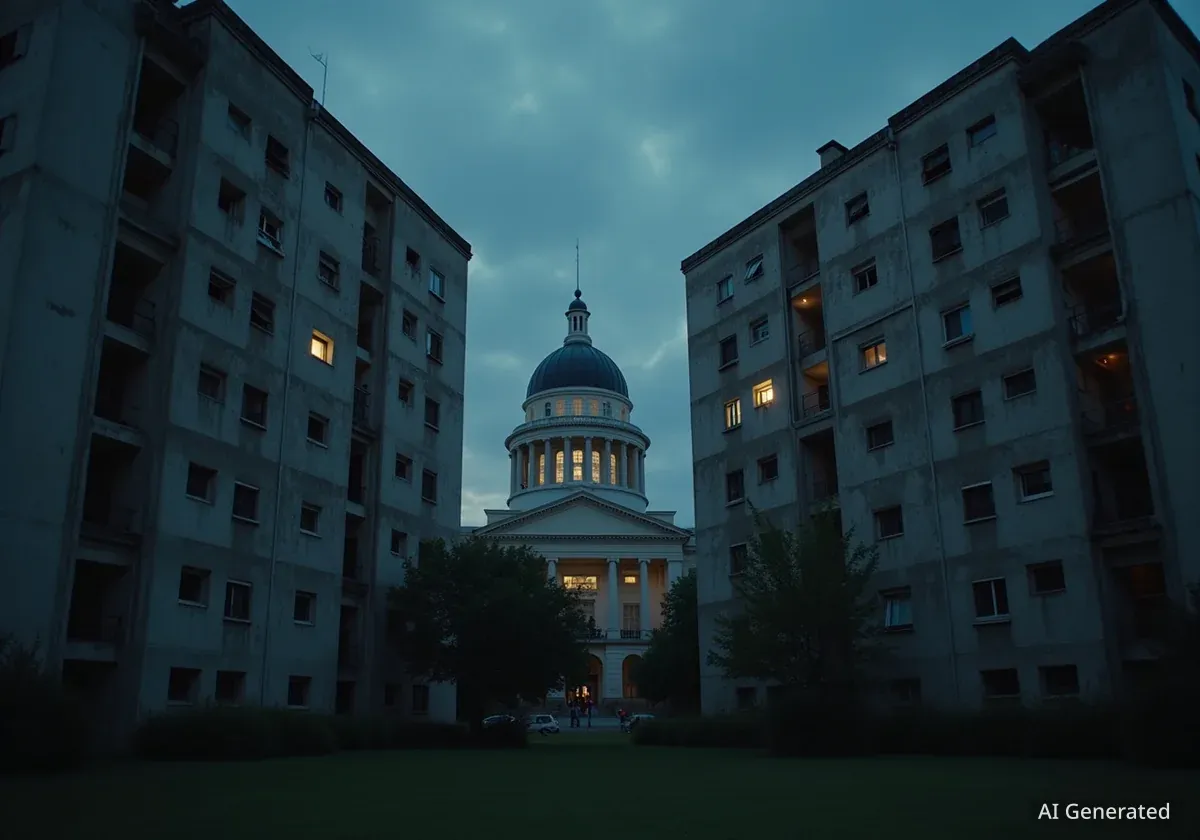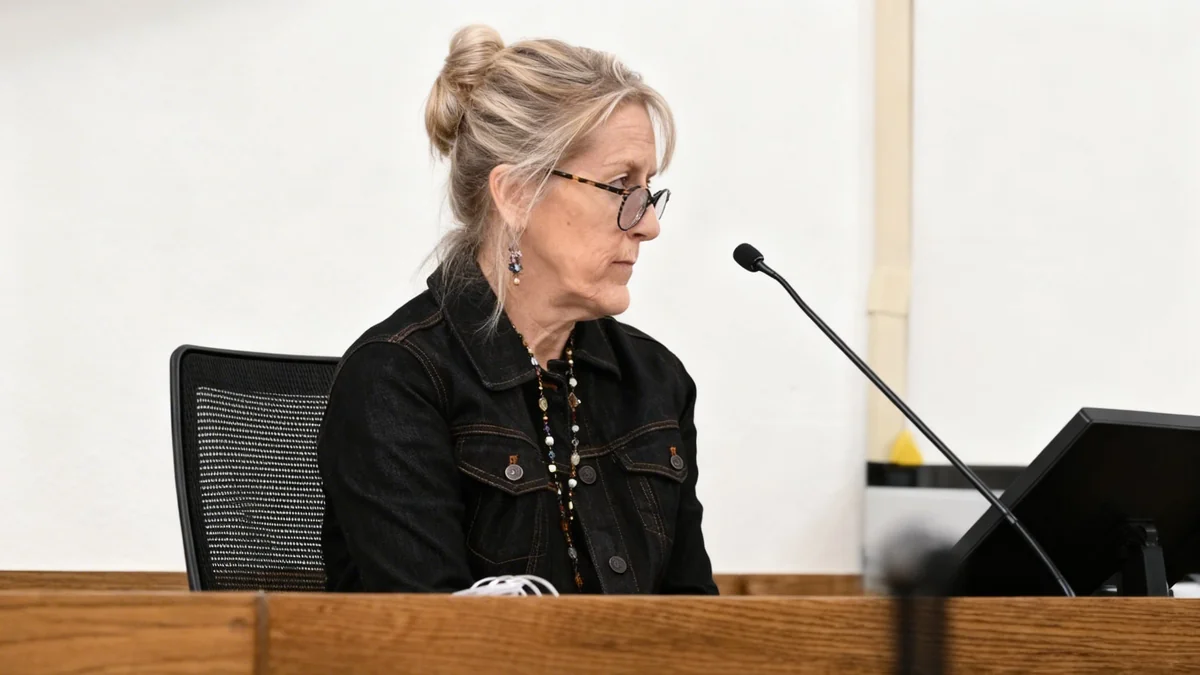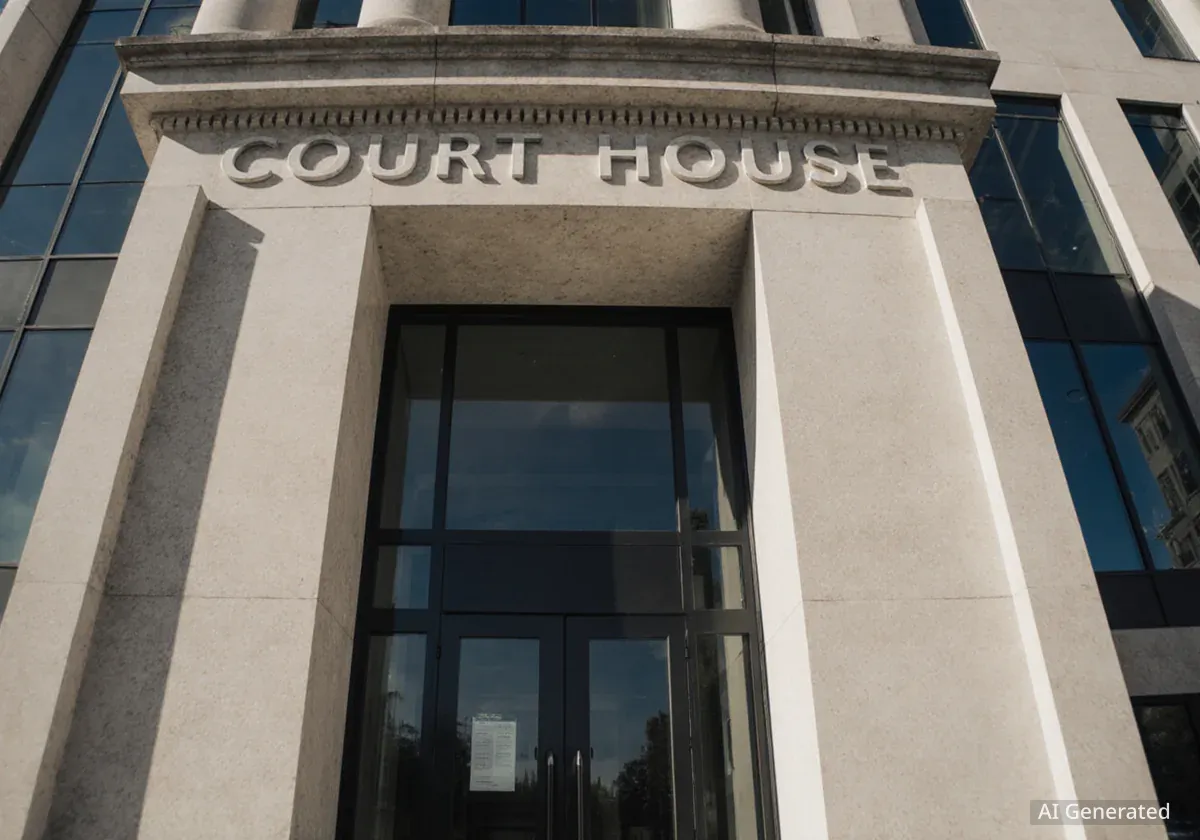Indiana's Attorney General has filed a lawsuit against an out-of-state landlord, accusing the company of neglecting critical safety and health issues at a large Indianapolis apartment complex. The legal action alleges that the owner of the 1,200-unit Lake Castleton Apartments systematically failed to address severe problems, including sewage backups, mold, and pest infestations.
The lawsuit, filed on November 13, targets the Ohio-based owner and the associated property management company. It claims they ignored dozens of code violations identified by local health officials, leaving residents in conditions described as unsafe. This action highlights a growing focus on landlord accountability amid concerns over housing standards in the state.
Key Takeaways
- Indiana Attorney General Todd Rokita has sued the owner of Lake Castleton Apartments in Indianapolis.
- The lawsuit alleges a "systematic failure" to repair unsafe conditions affecting over 1,200 units.
- Cited issues include sewage backups, water damage, mold, pest infestations, and broken air conditioning.
- The owner is accused of ignoring numerous code violations previously flagged by health officials.
Details of the State's Allegations
The lawsuit filed by Attorney General Todd Rokita's office paints a detailed picture of persistent neglect at the Lake Castleton Apartments. Located in the Castleton neighborhood of northeast Indianapolis, the complex is one of the larger residential properties in the area. According to the state's complaint, the management repeatedly failed to provide habitable living conditions for its tenants.
The legal documents list a series of serious issues that allegedly went unaddressed. These include recurring sewage backups, significant water damage leading to mold growth, and widespread pest infestations. The suit also mentions a failure to maintain essential services, such as providing functional air conditioning, which is a critical health concern during summer months.
These are not new complaints. The lawsuit contends that the Marion County Public Health Department had previously cited the property for dozens of violations. Despite these official warnings, the owner and management company allegedly failed to take prompt and effective action, allowing the problems to persist and worsen over time.
A Pattern of Neglect
The state's action against the Ohio-based landlord is part of a broader effort to enforce tenant protection laws. Legal experts note that lawsuits against large, out-of-state property owners often aim to set a precedent, signaling to other landlords that neglecting maintenance and safety standards will have significant legal consequences.
The Impact on Residents
For the hundreds of families living at Lake Castleton, the conditions described in the lawsuit represent daily struggles. Residents have reportedly dealt with the health risks associated with mold and raw sewage, the discomfort of non-functional utilities, and the general degradation of their living environment.
Living with persistent water damage can lead to respiratory problems and other health issues, particularly for children and the elderly. The failure to provide working air conditioning during hot weather can be dangerous, potentially leading to heat-related illnesses. These conditions create an unstable and stressful housing situation for tenants.
Housing by the Numbers
The Lake Castleton Apartments complex contains over 1,200 individual units, making it a significant housing provider in the Castleton area. The scale of the property means that any systemic failure in maintenance can affect thousands of residents.
The lawsuit seeks to compel the landlord to finally address these long-standing issues. If successful, it could result in court-ordered repairs, financial penalties, and a mandate for the company to implement a comprehensive maintenance plan to prevent future violations.
Legal Framework and Potential Outcomes
The Attorney General's lawsuit is based on state laws that require landlords to provide and maintain safe, clean, and habitable housing for their tenants. These laws, often referred to as the "warranty of habitability," give state authorities the power to intervene when property owners fail to meet their legal obligations.
What the State is Seeking
The primary goal of the legal action is to force compliance with state and local health codes. The state is asking the court to:
- Issue an injunction requiring the landlord to immediately begin repairs on all outstanding violations.
- Impose civil penalties for each violation, which can accumulate daily until the issues are resolved.
- Potentially appoint a receiver to oversee the property and ensure that repairs are completed correctly if the owner continues to be non-compliant.
The legal team for the Attorney General's office has stated that landlords, regardless of where their corporate headquarters are located, must adhere to Indiana law. The suit emphasizes that owning property in the state comes with a non-negotiable responsibility to the tenants and the community.
"Landlords have a fundamental duty to provide safe and healthy living conditions. When that duty is systematically ignored, as we allege in this case, our office will not hesitate to take action to protect Hoosier tenants," a spokesperson for the Attorney General's office might state to clarify the intent behind the lawsuit.
Broader Implications for the Indianapolis Housing Market
This high-profile lawsuit could have ripple effects throughout the Indianapolis rental market. It sends a strong message to other large-scale landlords that neglecting property maintenance can lead to severe legal and financial repercussions. Tenant advocacy groups have long called for more aggressive enforcement against what they term "slumlords," and this action by the state is being seen as a significant step in that direction.
For property management companies, this case serves as a reminder of the importance of responsive maintenance and transparent communication with residents. Failure to address complaints promptly not only harms tenants but also exposes the business to significant legal risk.
As the case proceeds through the legal system, both landlords and tenants across Indianapolis will be watching closely. The outcome could set a new standard for landlord accountability and reinforce the rights of renters to safe and habitable housing in Indiana.





